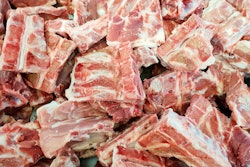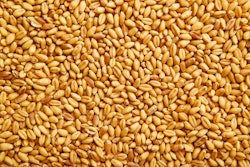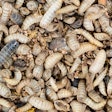Texas A&M University recently released research showing the benefits of male sterile sorghum in dairy cattle diets. This new variety of sorghum doesn't produce grain due to its male sterility, which offers several advantages for dairy producers, especially when replacing corn silage in dairy rations.
Key Highlights:
-
No Grain, No Problem: Male sterile sorghum eliminates concerns about grain processing, which can be challenging in traditional sorghum. As it doesn't produce grains, it stays green and retains its fiber digestibility longer than regular sorghum
-
High-Sugar Silage: Since the male sterile variety doesn’t develop grains, it accumulates sugars rather than starch. This high sugar content is beneficial for dairy cattle as it provides a great energy source and supports fermentation during silage-making, reducing undesirable fermentation.
-
Flexible Harvest Timing: Unlike traditional sorghum, where harvest timing is narrow due to the grain maturation, the male sterile variety offers a wider window for harvesting. This flexibility benefits both large and small producers in managing harvest logistics.
-
Feeding Trials and Results: In feeding trials, incremental replacement of corn silage with male sterile sorghum showed that a 25% replacement yielded the best results in terms of milk production. The research indicated that male sterile sorghum provided better digestibility for cows, resulting in greater milk production.
-
Considerations: While there are clear advantages, the male sterile variety does have challenges, including its higher moisture content at harvest (around 70-80%), which could lead to environmental risks like leachate during packing and ensiling. Additionally, higher sugar content could lead to bunk instability, especially in warmer months.
-
Potential for Water Savings: The male sterile sorghum is particularly valuable in areas where water usage is a concern, like the western U.S., as it can partially replace more water-intensive crops like corn silage while optimizing production.
The male sterile sorghum offers significant potential in improving dairy cattle diets, with benefits like higher sugar content for energy and increased flexibility in harvest timing. However, careful management of crop moisture and starch sources is necessary for optimal results. If properly managed, it could offer dairy producers a sustainable and cost-effective alternative to traditional forages, especially in water-scarce regions.








